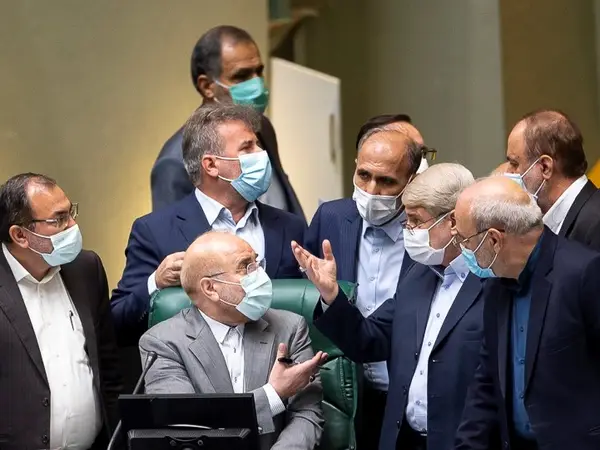A comment on the proposed bill to restrict Internet access in Iran by a leading lawmaker has revealed deep differences among conservatives over the legislation.
Iranian Labour News Agency, ILNA, on Tuesday quoted Reza Mir-Tajeddini, a conservative member of Iran’s parliament as saying, "Not only the Majles is not after restricting Internet access, but even the ban on social media platform Twitter should be lifted as revolutionaries can spread our message in the world using the platform."
The comment by Mir Tajeddini was in sharp contrast to remarks by the staunchest opponent of social media at the Iranian parliament Morteza Agha-Tehrani who happens to be the former leader of ultraconservative Paydari Party holding the majority at the conservative-dominated parliament.
Agha Tehrani said last week that over 20,000 Iranians have cursed him for his opposition to social media, adding that he would try to further the legislation and have foreign social media banned even if 80 million Iranians oppose him.
Mir-Tajeddini, on the other hand, said on Tuesday, "Why should Twitter be banned in Iran when the country's officials are using it? If it is bad, it should be banned for everyone, but now that the officials are using it, everyone else should also have access to the platform."
Mir-Tajeddini was alluding to the fact that Supreme Leader Ali Khamenei has several Twitter accounts in various languages, and other civilian officials and military commanders including President Ebrahim Raisi, Judiciary Chief Ghiolamhossein Ejei, Majles Speaker Mohammad Bagher Ghalibaf and national security chief Ali Shamkhani also use Twitter and other social media platforms for their messaging.
Mir-Tajeddini further stressed at the bans on other social media platforms should also be lifted. He said different ideas are being put forward on social media and there are so many insightful cultural figures in Iran who can remove possible doubts and answer possible questions. Facebook and You Tube are also blocked in Iran
Hardliners in Iran including Khamenei have spoken against free access to social media and have said that they should be regulated.
Iran during the past years has banned all major social media apps in Iran except Instagram where some 22 million Iranians are reportedly active. More than twice as much Iranian accounts are active on Telegram where sending video, audio and text is much easier. Telegram is also blocked but people use VPNs to connect.
Following the bans on most social media platforms after 2017, the Iranian government spent hefty budgets to develop its own homegrown applications. But Iranians did not trust government-made apps fearing surveillance and invasion of their privacy by security agencies.
On the other hand, homegrown applications have proven to be ineffective as they cannot support more than a few thousand users at any given time. Furthermore, they cannot facilitate cultural and scientific exchanges with the outside world.
The bigger concern on the part of more open-minded conservatives such as Mr. Mir-Tajeddini is that by restricting access to popular social media platforms such as Twitter, Telegram, Instagram and Facebook, Iranians are not likely to turn to Iran's own heavily restricted television and other media outlets that have been losing their audiences to foreign-based satellite television. This group of conservatives are probably concerned that in the absence of social media, the shaping of public opinion in Iran will fall totally into the hands of foreign-based satellite television channels whose sharp disagreement with the party-line in Iran is more than obvious and Iran's state-run TV cannot compete with those networks in terms of uncensored news and quality entertainment.
